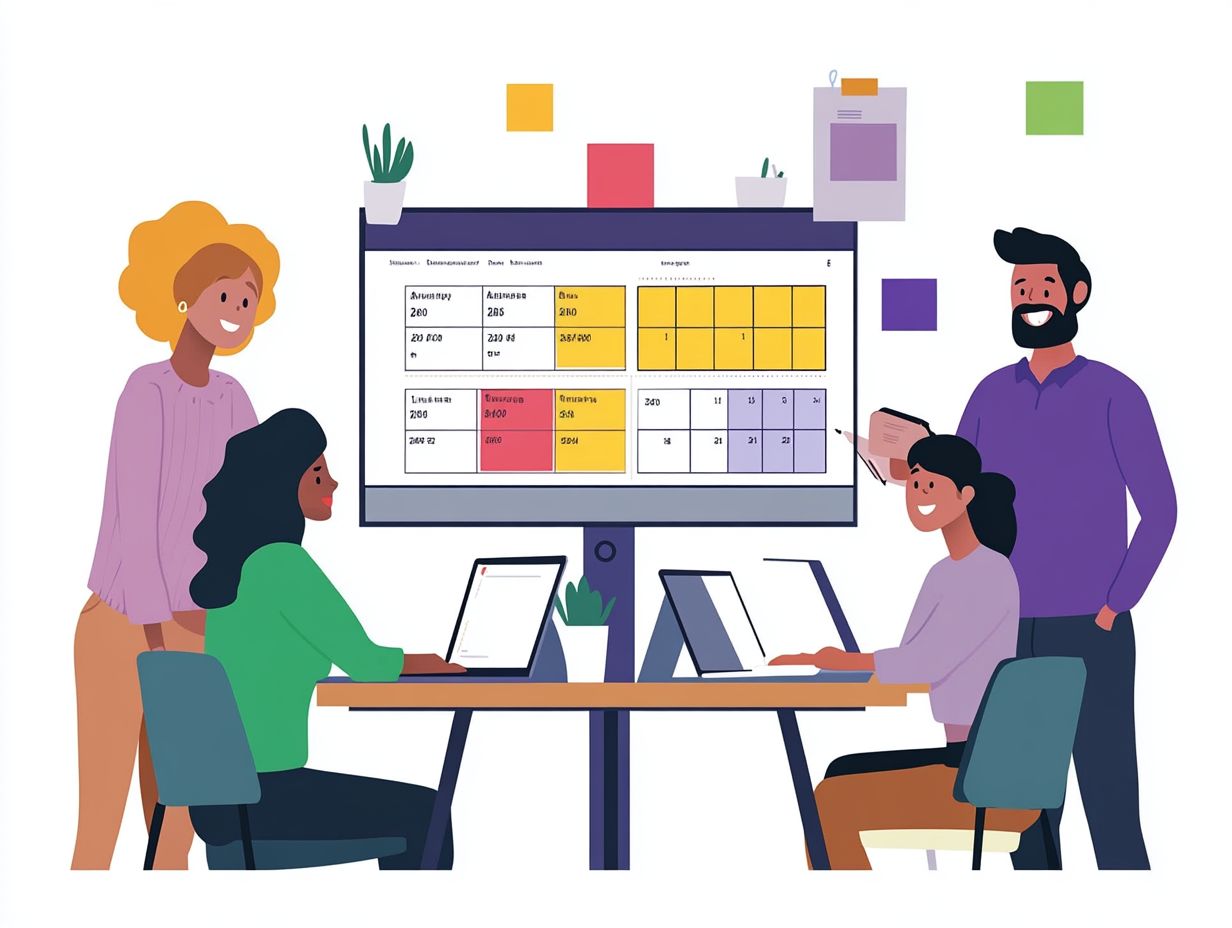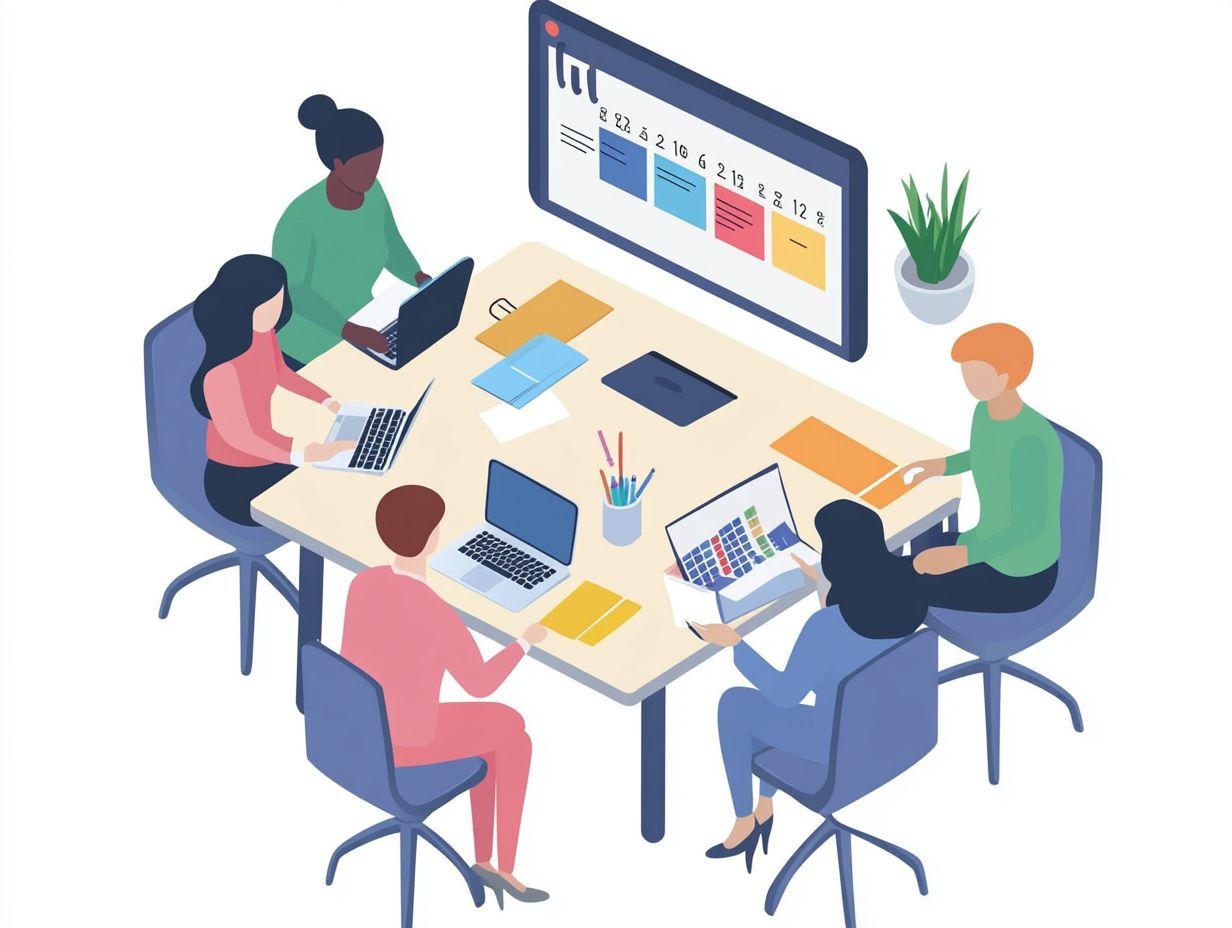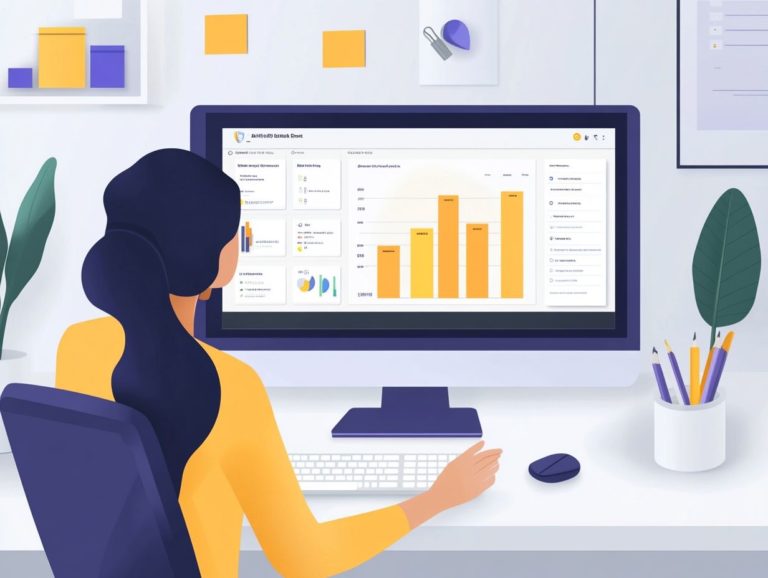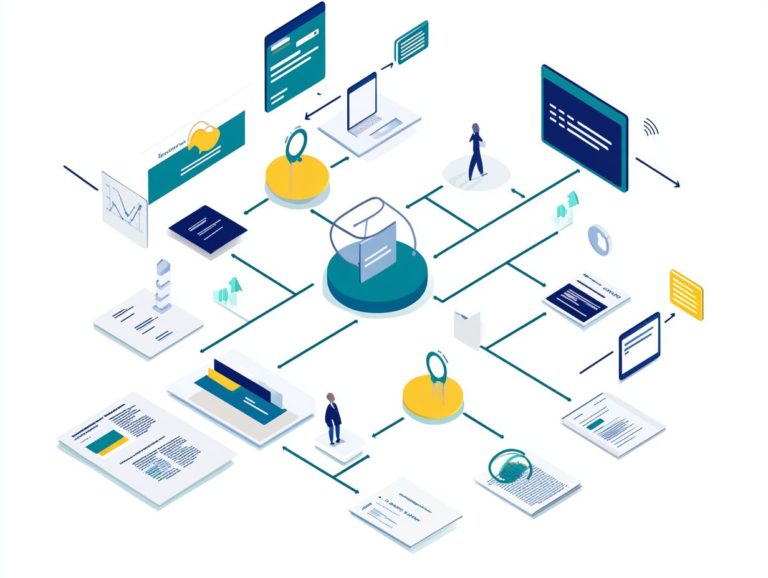How to Use CRM for Event Management?
Today s event landscape is fast-paced. Mastering effective management is essential for your success, and that s where Customer Relationship Management (CRM) systems come into play.
This article explores how CRM can revolutionize your event management. It streamlines communication, enhances attendee engagement, and optimizes your organizational processes.
You ll learn how to select the right CRM system, integrate it seamlessly into your planning, and implement best practices for effective data management.
Unlock the potential of CRM to elevate your events today!
Contents
- Key Takeaways:
- Benefits of Using CRM for Event Management
- Implementing CRM for Event Management
- Best Practices for Utilizing CRM in Event Management
- Effective Data Management and Analysis
- Utilizing CRM for Post-Event Follow-up and Evaluation
- Frequently Asked Questions
- What is CRM and how can it be used for event management?
- How can CRM be incorporated into the event planning process?
- Can CRM be used for event marketing?
- How does using CRM for event management benefit businesses?
- What features should I look for in a CRM system for event management?
- Are there any potential challenges or drawbacks to using CRM for event management?
Key Takeaways:

- Streamline communication and organization for your events by using a CRM system, allowing for seamless collaboration among team members and attendees.
- Maximize engagement by using CRM data to personalize experiences and interact with attendees before, during, and after the event.
- Implement best practices for effective data management and utilize CRM for post-event follow-up and evaluation to harness its full power in event management.
What is CRM and How Does it Apply to Event Management?
Customer Relationship Management (CRM) is your go-to tool for optimizing data management and streamlining processes involved in managing clients as an event planner.
In event management, an effective CRM system serves multiple purposes, from handling reservations to tracking sales and nurturing relationships with vendors and attendees. Understanding how to use CRM to improve customer experience can further enhance these processes.
By integrating features like audience grouping and performance metrics, CRM elevates the overall efficiency and outcome of any event, whether it s a virtual gathering, a hybrid affair, or an end-of-year banquet.
Think of CRM solutions like Zoho and HubSpot as your allies in automating mundane tasks and managing comprehensive marketing campaigns.
For instance, with Zoho’s email automation feature, you can send personalized invitations and follow-up reminders effortlessly. Meanwhile, HubSpot’s marketing tools allow you to track engagement and conversion rates easily.
These systems often come equipped with customer feedback tools, enabling you to assess attendee satisfaction through post-event surveys.
With functionalities like lead tracking and reporting dashboards, you can ensure seamless communication and foster greater client engagement, leading to smoother operations and more successful events.
Benefits of Using CRM for Event Management
Utilizing a robust CRM in event management offers a wealth of benefits that significantly enhance your workflow and client interactions as an event planner. For instance, learning how to use CRM for lead generation can further streamline your processes.
From managing marketing campaigns to tracking leads and measuring performance, effective CRM applications empower you to optimize the entire event experience.
This ultimately leads to heightened customer satisfaction and ensures you successfully achieve your event objectives.
Streamlining Communication and Organization
Streamlining communication through a CRM system is vital for you as an event planner, ensuring that all stakeholders remain informed and engaged throughout the planning process.
By utilizing a user-friendly dashboard, you can manage customer relationships more efficiently, automate tasks, and maintain strong relations with clients. This results in events that run seamlessly.
Many CRMs come equipped with robust tools for email campaigns, allowing you to reach out to attendees, vendors, and sponsors with targeted messaging that resonates.
Employing tagging strategies within these systems enables you to segment leads effectively, ensuring your communications are personalized and relevant.
The advantages multiply when cloud-based platforms integrate effortlessly with event technology, enhancing your organization and fostering better connections.
This seamless integration consolidates event management and communication tools, giving you the power to receive real-time updates and collaborate effectively, elevating the overall attendee experience.
Maximizing Attendee Engagement and Satisfaction

Maximizing attendee engagement and satisfaction is essential for successful event management. Utilizing CRM systems can significantly enhance these facets.
Implement strategies like audience segmentation and personalized messaging to ensure every attendee feels valued. This directly influences customer satisfaction and the overall success of your event objectives.
To elevate engagement, integrate methods like surveys and feedback loops to gain insights into attendee preferences. These tools allow you to gather real-time feedback, enabling immediate adjustments that enhance their experience.
Advanced CRM features give you the power to track interactions and generate detailed reports on attendee engagement metrics. Using dashboards within a CRM helps analyze response rates from post-event surveys and assess the effectiveness of various sessions.
This data-driven approach fosters continuous improvement and strengthens the relationship between attendees and organizers, making your events more memorable and impactful.
Implementing CRM for Event Management
Implementing a CRM system for event management requires careful planning and a clear understanding of how to use CRM for social media management to align with the unique needs of event planners.
Choose CRM systems with robust integration capabilities with other event management software. This choice is crucial for effective vendor management and optimizing workflows, ensuring every event runs smoothly.
Choosing the Right CRM System
Choosing the right CRM system is pivotal for you as an event planner. It elevates your service delivery and optimizes operational efficiency.
Consider factors like customization, scalability, and a user-friendly dashboard that simplifies managing customer relationships and tracking performance metrics.
Evaluating various CRM options, such as GlueUp and Event Hub, can profoundly impact your event management effectiveness.
Compare features like integration capabilities, ticketing systems, and attendee engagement tools. These elements will enhance the overall event experience.
Analyzing pricing structures will help align the CRM you choose with your organization s budget.
Dive into user reviews for insights into real-world performance and customer satisfaction. This ensures the system you select meets your functional requirements and enriches the user experience.
Integrating CRM into Event Planning and Execution
Integrating CRM into your event planning and execution processes is vital for maximizing efficiency. This ensures everything runs like a well-oiled machine.
With the right integration capabilities, manage marketing campaigns, track sales, and monitor event attendance. These actions lead to better data management and enhanced customer acquisition.
Connecting your CRM with various platforms such as fundraising tools and event technology streamlines your operations.
For instance, integrating with platforms like Eventbrite allows automatic transfers of attendee data, eliminating tedious manual entry and reducing errors.
Connecting with fundraising platforms like GoFundMe or Classy allows real-time donation tracking, giving you the power to adjust strategies on the fly. These integrations optimize processes and provide a comprehensive view of participant engagement and financial contributions.
Best Practices for Utilizing CRM in Event Management

To harness the advantages of a CRM in event management, adopt best practices, including how to use CRM for team collaboration, that elevate data management and streamline event workflows.
Implement structured processes for capturing, analyzing, and utilizing data to influence performance metrics and enhance the overall success of your events.
Effective Data Management and Analysis
Effective data management and analysis form the bedrock of a successful CRM strategy in event management. By using a complete database, you can generate detailed reports, analyze customer relationships, and make informed decisions grounded in performance metrics.
Implementing tagging strategies for lead segmentation allows you to categorize contacts based on their interests and behaviors. This enables you to communicate in a way that truly resonates with each group.
Thoroughly analyzing event-related data not only sheds light on emerging trends but also reveals areas ripe for improvement. This structured approach builds stronger relationships with clients, giving you the power to proactively address their preferences and pain points, ultimately enhancing overall customer satisfaction.
Such insights allow you to refine your offerings, ensuring that each event aligns seamlessly with client expectations. Transform one-time attendees into loyal advocates it’s time to elevate your event game!
Utilizing CRM for Post-Event Follow-up and Evaluation
Use your CRM for your post-event follow-up and evaluation. This is essential for cultivating loyal customers and enhancing the performance of your future events.
By gathering feedback efficiently, you can assess customer satisfaction and customize future events to align with your clients’ needs.
Incorporating well-crafted follow-up strategies think targeted surveys and personalized thank-you emails can greatly elevate the overall attendee experience. This fosters a genuine sense of appreciation and engagement that keeps them coming back.
The automation features in CRM systems streamline communication, ensuring that no attendee is left in the shadows and that follow-ups happen promptly.
For instance, tracking participant responses through your CRM can unveil valuable insights into engagement levels at various stages of the event. This data is crucial for spotting trends and pinpointing areas for improvement, enabling you to plan future events that not only meet expectations but exceed them.
By tailoring content and experiences based on authentic attendee feedback, you create memorable events that resonate long after the curtain falls.
Frequently Asked Questions
-
What is CRM and how can it be used for event management?
-
How can CRM be incorporated into the event planning process?
-
Can CRM be used for event marketing?
-
How does using CRM for event management benefit businesses?
-
What features should I look for in a CRM system for event management?

CRM stands for customer relationship management and is a software tool that helps businesses manage their interactions and relationships with customers. It can also be used for event management by keeping track of attendee information, communication, and event data in one central location.
CRM can be incorporated into the event planning process by creating a database of potential attendees, managing event invitations and registrations, tracking attendee interactions and preferences, and sending targeted communications to attendees before, during, and after the event. For more details, check out this guide on how to use CRM for inventory management.
Yes, CRM can be used for event marketing by allowing event organizers to segment their audience and send personalized marketing messages to different groups. Additionally, understanding how to use CRM for market research can track the success of marketing efforts and help identify areas for improvement.
Using CRM for event management can benefit businesses by streamlining the event planning process, providing a more personalized experience for attendees, and allowing for better data analysis and insights. It can also help businesses save time and resources by automating tasks and simplifying communication with attendees.
Some key features to look for in a CRM system for event management include attendee database management, event registration and ticketing, email marketing capabilities, event analytics and reporting, and integrations with other event management tools.
Are there any potential challenges or drawbacks to using CRM for event management?
One challenge of using CRM for event management is the initial setup. Connecting the CRM to other tools may require some technical knowledge.
Event planners unfamiliar with CRM software might need time to adjust. This is known as a learning curve.
Other drawbacks include the system’s cost and the necessity for regular updates and maintenance.
Despite these challenges, embracing CRM can greatly enhance event planning effectiveness!






